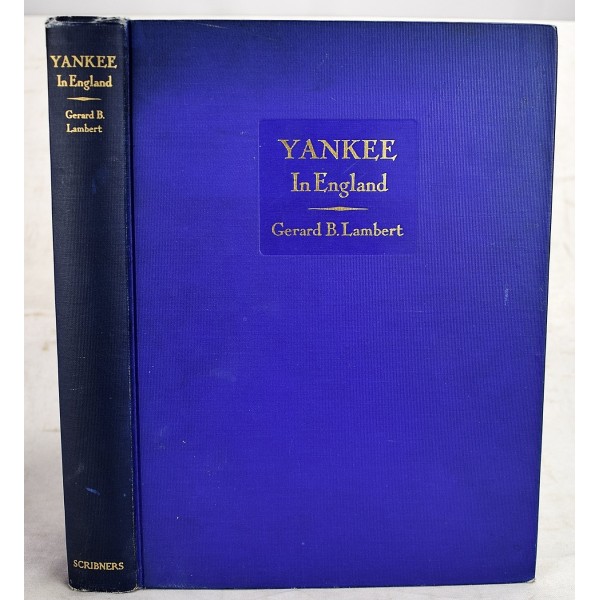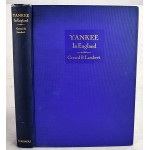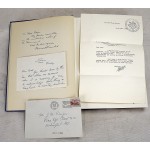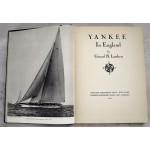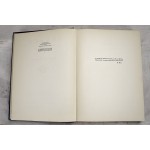Yankee in England
Yankee in England
Lambert, Gerard B
C. Scribner's sons, ltd, 1937
Interesting provenance: From the library of Stacy Lloyd III, Paul Mellon's stepson. Inscribed by author Gerard B. Lambert to Matt Daiger. First printing (A on copyright page). Hardcover Bound in publisher's blue cloth. Gilt title to cover and spine. Good binding and cover. Light foxing to endpapers. This is an oversized or heavy book, which requires additional postage for international delivery outside the US. This copy also contains several pieces of related ephemera including two typed letters from confirming the acquisition of the book for Stacy Lloyd from Daiger. Also a handwritten letter from the author to Daiger (signed Jerry).
Gerard Barnes Lambert (1886-1967) is widely known as the “Father of Halitosis,” for his aggressive marketing of Listerine mouthwash. Good news for guardians of good taste (pardon the expression) is that Lambert’s daughter, Rachel Lowe Lambert Lloyd “Bunny” Mellon (1910-2014), was a great pal of Jacqueline Kennedy Onassis. His father Jordan Wheat Lambert (1851-1889) was a native of Alexandria, Virginia. He named his first company Lambert Pharmacal Co.; it later became the Warner-Lambert Pharmaceutical Co. The younger Lambert fought in World War I and then joined his father’s firm. Around 1922 he glommed on to the medical term for bad breath: “Halitosis.” Listerine to the rescue. When he became president of the firm in 1923, the younger Lambert turned his focus to advertising—aggressive advertising. He would later attribute his business successes to an independent turn of mind. In his memoir, All Out of Step.
“There is one philosophy I have about advertising that, so far in my life, has never met with approval by anyone…It is my belief that if a company has a certain amount of advertising, it can wisely spend an additional dollar on advertising if that dollar brings in not only an additional dollar and cent…I shudder to think what would have happened if we had run a stupid old-fashioned budget in the Lambert Pharmacal Company in 1922. A committee of stuffy men and accounts would have sat around…and we would probably still be earning $115,000 a year!”
